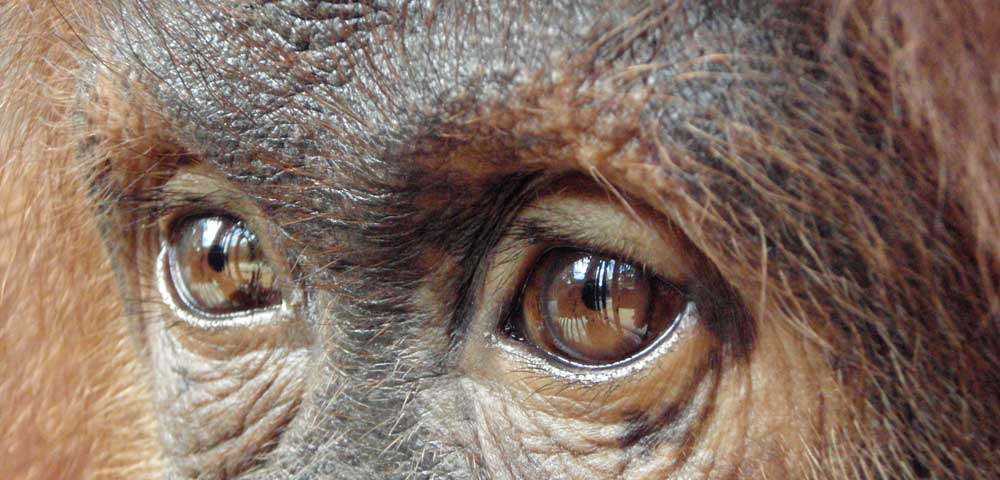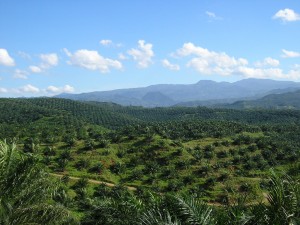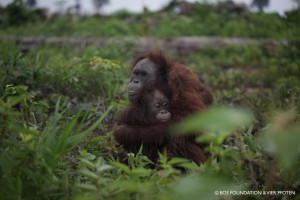Palm oil is used in 50% of all consumer goods; cooking oil, potato chips, instant noodles, margarine, baked goods, cosmetics and soap products to name a few. Malaysia and Indonesia alone provide 85% of the world’s palm oil which is constantly increasing in demand every year.
Rainforests in the regions of Borneo and Sumatra are cleared rapidly to make way for new palm oil plantations, which are unsuitable habitats for orangutans. The United Nations Food and Agricultural Organization states that the rate of deforestation in Malaysia has increased by 86% since the 1990s, as compared to neighbouring Indonesia’s 18% during the same period. According to The World Bank, Malaysian forests are being deforested at four times the sustainable rate.
One of the main underlying reasons for such a drastic increase in palm oil plantations, other than the fact that demand for palm oil has been increasing over the past decade, is that there have been economic pressures in Indonesia due to the drastically expanding population. Indonesia’s population increased from 10 million at the start of the 20th century to well over 240 million as of 2014. The government would be happy to be able to improve the economy through an increase in sale of palm oil since agriculture plays a huge role in sustaining the Indonesian economy. This huge demand for palm oil has even resulted in the rise of illegal palm oil plantations whereby protected forested regions have been illegally cleared by illegal plantation groups in order to supply the palm oil fruit to existing palm oil companies.
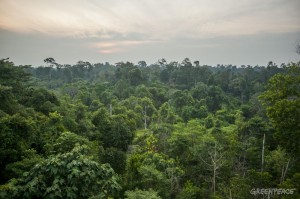
http://www.greenpeace.org/international/en/multimedia/slideshows/Year-in-Pictures-2013/Tesso-Nilo-National-Park-in-Sumatra/
For examples, Indonesia’s Tesso National Park in Sumatra, one of the last safe havens for endangered animals such as the Sumatran orangutans and tigers, is now threatened by illegal palm oil plantations. Two of the world’s largest palm oil companies, Asian Agri and Wilmar, even accepted palm oil fruit illegal grown on these plantations in order to meet the demand for palm oil. Even with knowledge of such activities going on, little is done by the Indonesian government to enforce their laws on illegal palm oil production practices and to clam down on such illegal activities.
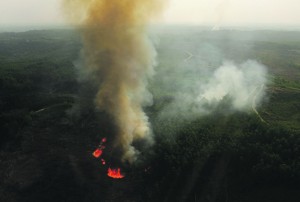
http://www.todayonline.com/voices/global-effort-needed-fight-haze
What makes things worse is that many of these palm oil companies, especially the smaller companies that do not have the funds to employ other methods of clearing of the forset, use slash-and-burn techniques and this has multiple adverse consequences. Although such methods are very cheap and efficient, these fires kill many orangutans in the process and creates a very unsustainable environment for orangutans to reside even in the nearby remaining forested areas due to other issues such as haze due to the fires. In 1997 and 1998, these slash-and-burn techniques got out of control and the intense fires created had very devastating effects that resulted in an estimated death of over 8000 orangutans.
Burning forests has been then made illegal with laws put in place by the government, however, very little is done by the government to ensure that the laws are enforced. As a result, these laws can be considered ineffective as forests are continued to be burned up to make way for oil plantations every year, many more orangutans dying in the process.
